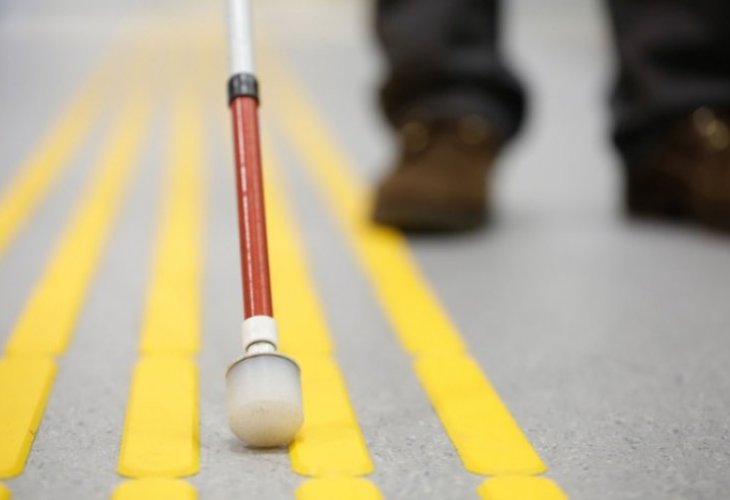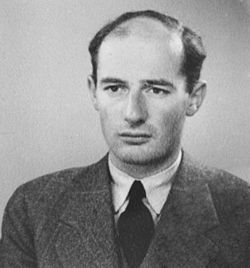The Holocaust
Raoul Wallenberg: The Swedish Hero Who Saved 100,000 Jews from the Holocaust
The fearless Swedish diplomat who defied the Nazis, forged thousands of protective passports, and risked everything to rescue Jews from the horrors of Budapest during World War II
- Hidabroot
- |Updated

On Holocaust Remembrance Day, as we reflect on the darkness that fell over Europe, the barbarism that consumed nations claiming to be “civilized,” and the human cruelty that knew no bounds, it is vital to also remember the light. To remember those who, even in an age of horror, held on to their humanity. To remember the angels who risked their lives to save others. Among them, few saved as many — or paid such a heavy price, as Raoul Wallenberg.
A Marketing Executive Who Became a Hero
Raoul Wallenberg was a Swedish businessman who had grown disillusioned with his comfortable life as World War II neared its end. He felt that, while the world was burning, he was wasting time on trivialities. In May 1944, his chance came. A Jewish business partner who had escaped Hungary recommended him for a diplomatic mission to Budapest, recently occupied by the Nazis. The U.S. had requested that Sweden expand its diplomatic staff to help save Hungarian Jews. Wallenberg, fluent in multiple languages and known for his creativity and courage, was the perfect candidate.
When Wallenberg arrived in July 1944, 400,000 Hungarian Jews had already been deported to their deaths, under the supervision of Adolf Eichmann himself. In the midst of that hell, Wallenberg launched one of the most daring rescue operations in human history.
The Birth of the “Wallenberg Passports”
Even before Wallenberg’s arrival, the Swedish embassy had issued limited “protective passports” to Jews — documents that looked official but held no real authority. Wallenberg transformed them into powerful tools of salvation. He redesigned them with official stamps and gold seals to appear indisputable and began distributing them en masse.
Though authorized to issue only 1,000, he pushed for 4,500, and secretly printed over 10,000, risking his life each time. “He amazed us with his unconventional methods,” recalled his aide, Per Anger, “but soon we realized that his way was the only way.”
Creating Safe Havens in a City of Death
When Nazi persecution intensified in late 1944, Wallenberg began renting entire buildings and hanging Swedish flags over them, declaring them “Swedish libraries” or “Swedish research centers.”
These became “Swedish Houses” — havens protected by diplomatic immunity. Around 15,000 Jews found refuge behind those walls.
Even when the government tried to void his protective documents, Wallenberg personally lobbied ministers and generals, fighting bureaucracies and braving danger to keep them valid. When Jews were already being loaded onto trains to Auschwitz, he raced after them.
 Raoul Wallenberg
Raoul Wallenberg Standing Up to the SS
Agnes Mandel-Adachi, one of his Jewish aides, recalled: “Raoul followed the deportation trains to the Austrian border. He shouted at the Nazis in perfect German: ‘How dare you take my people! They are under my protection!’ Then he opened a large black book and began reading out names — faster than a machine gun. The people understood the trick: they claimed to be on his list and climbed onto his truck. He brought back a thousand Jews to Budapest that day.”
When asked later about the mysterious “book of names,” Wallenberg laughed and revealed it was completely blank.
Rescue from the Danube
When the Nazis began executing Jews along the frozen Danube River, tying three together and shooting the middle one, Wallenberg refused to stand by. He arrived at the river with his aides and ordered them to swim into the freezing waters to pull survivors out.
He brought dozens of half-dead victims to safety, arranging medical care and shelter. His courage saved around 100,000 lives in total — an astonishing feat of moral heroism.
The End of the War — and the Mystery That Followed
When the Red Army liberated Budapest in January 1945, the city’s Jews were finally free. But for Wallenberg, it was the end of his freedom. He was summoned by Soviet officers “for questioning” and never returned. The Russians claimed he died in prison in 1947, but witnesses later reported seeing him alive years afterward. Whether he perished in captivity or survived in secret remains one of history’s great unsolved mysteries.
A Legacy of Courage and Compassion
Today, Raoul Wallenberg is remembered as one of the greatest humanitarians of all time — a man who fought evil not with weapons, but with paper, words, and unwavering moral courage.
His name adorns streets, schools, and memorials across the globe.
His truest monument lies in the hundreds of thousands of lives he saved.
“I can never return to Sweden,” he once wrote, “without knowing that I have done everything a human being can do to save as many Jews as possible.”
He never did return home, but he fulfilled that vow, and became light itself in Europe’s darkest night.

